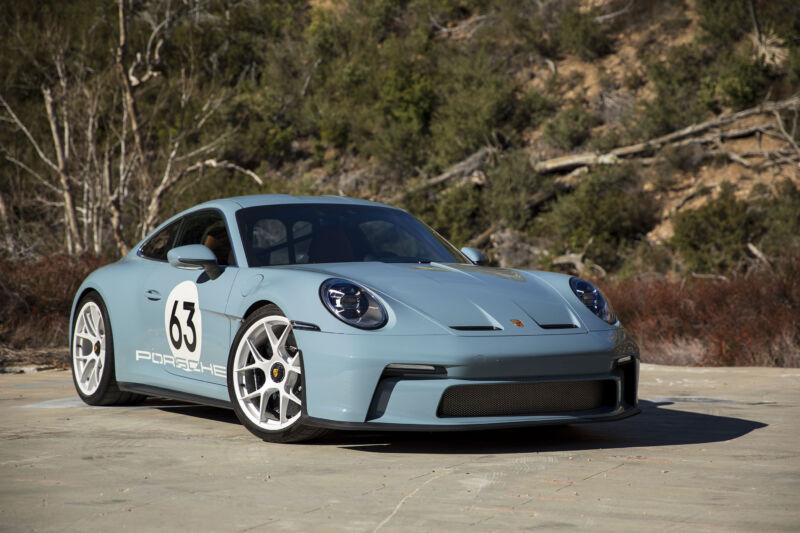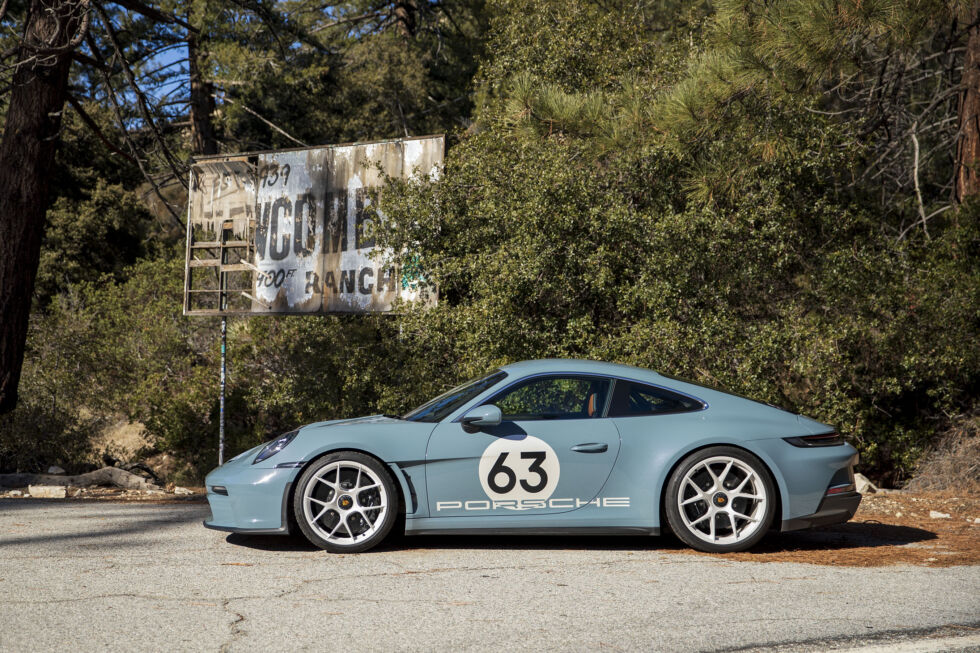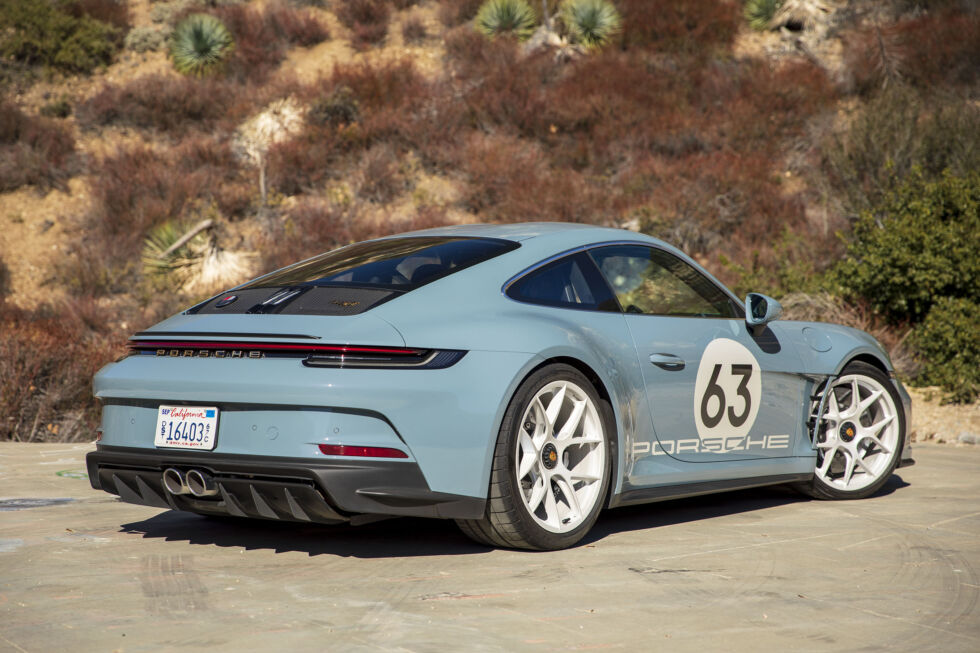
Bradley Iger
Although Porsche is in the midst of taking its BEV technology mainstream, the company hasn’t lost sight of the fact that its high-performance reputation was built on the 911.
Over the past few years, the automaker has developed a myriad of different versions of the iconic sports car, resulting in offerings that currently range from plush open-top cruisers to hardcore track monsters, along with special edition models like the off-road-tuned Dakar and heritage-inspired Sport Classic. You might be wondering, then, if there’s really an opportunity for a new performance-focused model to stand out in the 911 lineup.
On the surface, the S/T seems to tread much of the same ground already occupied by the GT3 Touring, an iteration of the track-ready GT3 that ditches the large fixed rear wing for the smaller, aesthetically subtler active rear spoiler found on Carrera models. But as lovely to drive as the GT3 Touring is, it feels like a conceptual afterthought.
Because of its reduced downforce, Porsche has always considered the Touring to be a GT3 intended for the street rather than the track, yet the model’s tuning has otherwise remained unchanged from the standard GT3. This, along with a number of other crucial updates, allows the S/T to stand out from the crowd not just among fast 911s but among sports cars in general.

Bradley Iger
The name is a nod to a racing version of the 911 S from the late 1960s: Internally known as the ST, the package included modifications to the chassis, engine, and body to improve performance. But unlike the iconic Carrera RS 2.7 that would debut a few years down the road, the ST lacked the aggressive aerodynamic elements that would later come to define the look of track-tuned 911s.
The core hardware involved is an interesting amalgamation of components from the current GT division lineup. In a purposely old-school approach not unlike the Sport Classic, the S/T pairs the GT3 RS’s naturally aspirated 518 hp (386 kW) 4.0-liter flat-six engine with the GT3’s six-speed manual gearbox—a combination that can’t be had in any other factory-produced 911.
Like the GT3 RS, the S/T’s hood, front fenders, doors, and roof are made from carbon fiber, and thanks to its magnesium wheels, fixed-back carbon bucket seats, and other weight-reducing components that are equipped as standard, it manages to tip the scales at a svelte 3,056 lbs (1,390 kg), making this the lightest 911 of the current generation.

Bradley Iger
Adding power and cutting weight are certainly welcome developments for performance enthusiasts, but it’s the raft of subtle, less quantifiable changes that make the S/T such an incredibly compelling sports car. Porsche’s goal was to create the ultimate canyon carver rather than an apex-hunting track machine, and as such, it has tossed the GT3’s rear axle steering system and retuned the suspension dampers for the less-than-perfect tarmac that’s typical of twisty backroads.
To further ratchet up driver engagement, engineers reduced the height of the shift lever by 10 mm, resulting in even shorter, more precise throws. The transmission’s gear ratios were shortened by 8 percent to allow the engine to climb to its searing 9,000 rpm redline more rapidly, resulting in more frequent shifting. There’s a new lightweight clutch and single mass flywheel on board, too.
The latter plays a surprisingly big role in the S/T’s distinctive character, allowing the engine to sweep through the revs with a level of manic urgency that makes the GT3 Touring seem almost lazy by comparison. And thanks to the S/T’s reduced sound deadening compared to the GT3 (which already has significantly less sound deadening than a 911 Carrera), every mechanical process that normally takes place behind the scenes is brought to the forefront. It can equate to noisy steady-state driving at times, but the soundtrack that the S/T delivers when you’re rowing through the gears easily makes up for it.




















+ There are no comments
Add yours